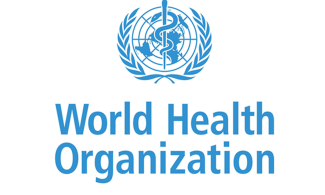
The World Health Organization says an estimated 1.1 million new cases of cancer and 700,000 cancer-related deaths are being recorded in Africa yearly.
WHO Regional Director for Africa, Dr Matshidiso Moeti disclosed this in a statement posted on the organisation’s website to commemorate the World Cancer Day.
According to Moeti, data estimates showed a considerable increase in cancer mortality to nearly one million deaths per year by 2030, without urgent and bold interventions.
The World Cancer Day is an international event held on February 4 to raise awareness of cancer and encourage its prevention, detection and treatment.
The statement read, “A young girl from Rwanda with a tumor the size of a cauliflower on her face met a doctor. The young girl was one of the doctor’s first patients. The girl’s father, a subsistence farmer, had tried traditional solutions, but the tumor had grown, and his expenses too. The family needed an oncologist. Eventually, the doctor called the one who talked her through the treatment that saved the girl’s life.
“We join the international community commemorating World Cancer Day today, 4 February 2023. The theme of this year is “Close the care Gap: Uniting our voices and taking action.” This year’s campaign summons like-minded people to be united as we build stronger alliances and new innovative collaborations in the fight against cancer.
“Cancer is a public health issue of major concern. The numbers are stark. Approximately 1.1 million new cancer cases occur each year in Africa, with about 700,000 deaths. Data estimates show a considerable increase in cancer mortality to nearly one million deaths per year by 2030, without urgent and bold interventions.
“We should recall that the most common cancers in adults include breast (16.5%), cervical (13.1%), prostate (9.4%), Colorectal (6%), and liver (4.6%) cancers, contributing to nearly half of the new cancer cases. With significant data challenges, childhood cancer incidence in sub-Saharan Africa is estimated at 56.3 per million population. Current projections show that Africa will account for nearly 50% of the global childhood cancer burden by 2050, compelling expeditious efforts to confront this concern, as was done for the young girl from Rwanda.
“In that view, it is important to celebrate some achievements we have made as a region, at the country level. Twelve countries in the region have valid National Cancer Control Plans. WHO is supporting eleven additional countries in developing or updating their National Cancer Control Plans aligned to the global cancer initiatives coupled with the presence of governance structures at the government level to implement Cancer Plans.
“Countries such as Ghana, Senegal, Zambia, and Senegal have developed National Treatment Guidelines for childhood cancer. Twenty-five countries have developed and are using Cancer Guidelines. Political will remains significant in improving the cancer landscape. Including childhood cancer medicines in the National Health Insurance Scheme in Ghana and Zambia is a good example. Such a strategic action will significantly contribute to the increase in survival rates for children with cancer in these countries.”